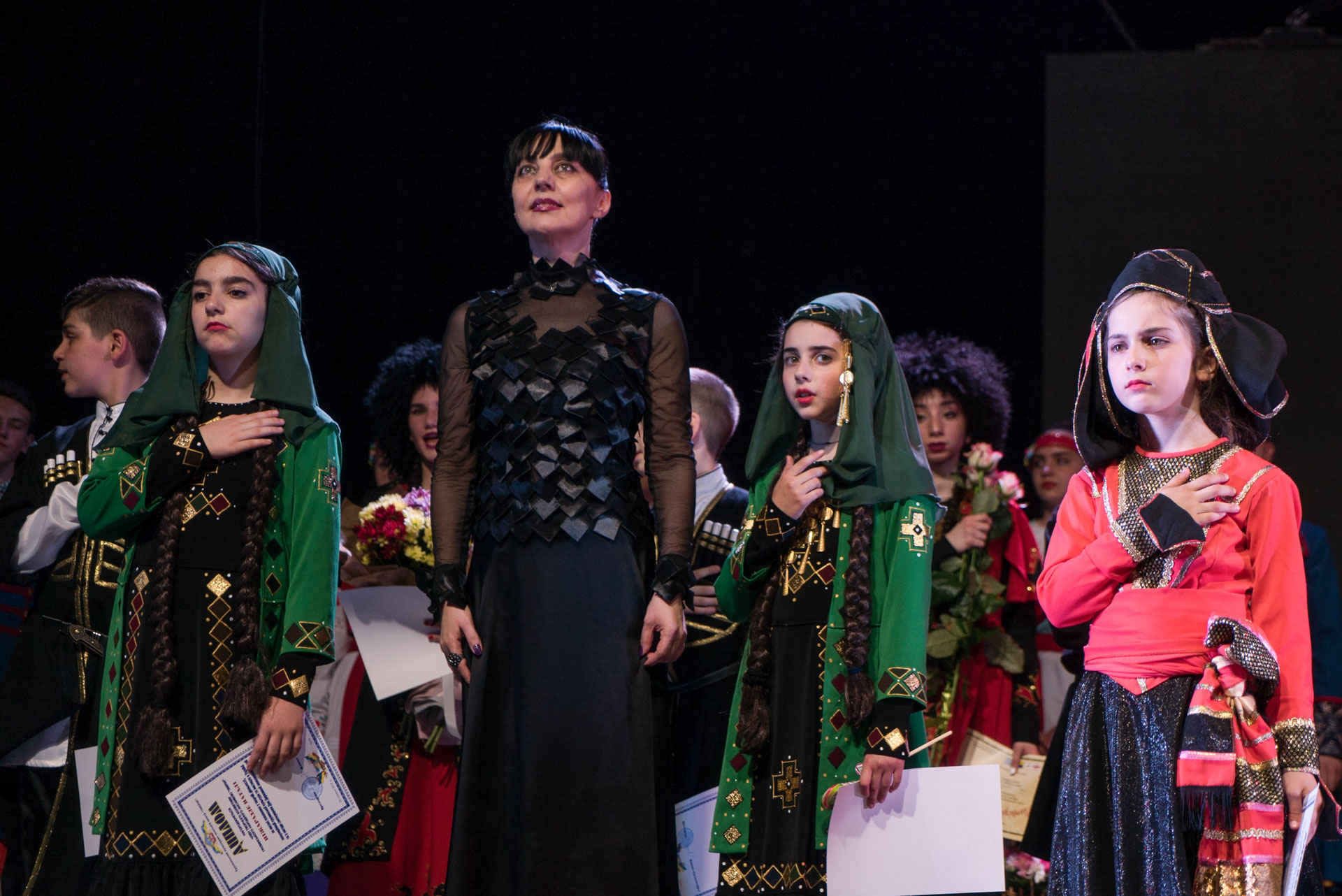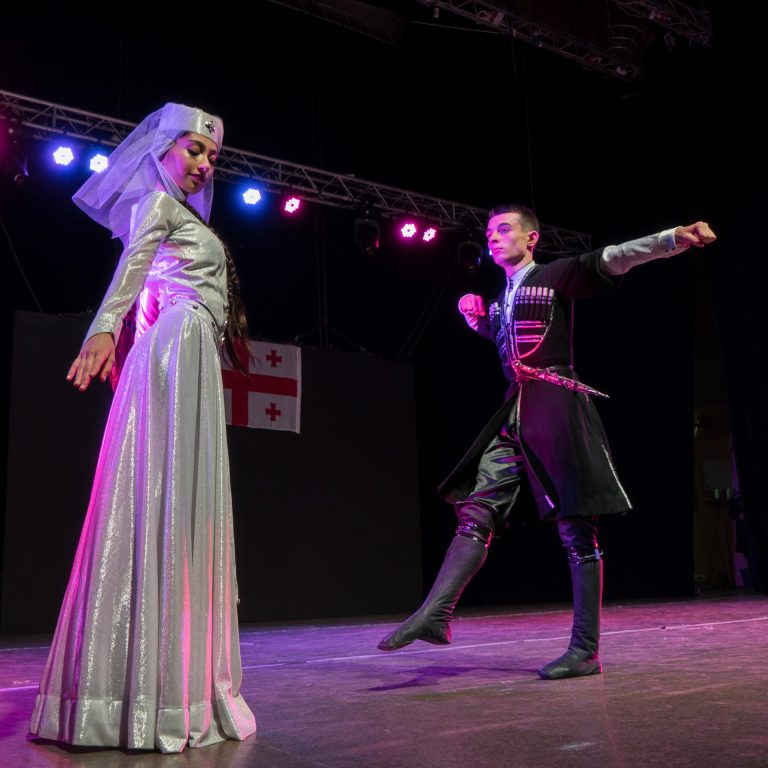Representatives of the Georgian diaspora in Ukraine are among the most renowned ones: they occupied high public offices and became the first foreign nationals accepted to serve in the Ukrainian Armed Forces after the beginning of Russia’s aggression towards Ukraine. The Georgian community on the territory of Ukraine dates back to as far as 300 years ago as a result of attacks from the Ottoman and Iranian Empires and grew significantly as the Russian occupation of Abkhazia began in our times. Now, almost 35 thousand Georgians live in Ukraine.
In the Centre of Culture and Arts of National Aviation University in Kyiv, loud Georgian music sounds. Children are dancing on the stage of the concert hall. Manana Sulakvelidze, the President of the Georgian Cultural Educational Centre “Iberia” is watching them. They are having a dress rehearsal now, and in an hour, a concert will start to commemorate the Independence Day of Georgia on the 26th of May.
numbers
1918 On the 26th of May, 1918, after the fall of the Russian Empire, the government of Georgia declared independence of the country. They managed to maintain the status until the Soviet army intervention in 1921. Georgia (Georgian: საქართველო, Sakartvelo, this is how Georgians call their country) restored independence in 1991.Many Georgian holiday celebrations are accompanied by national dances. Among the classical and the most common ones are kartuli (Georgian: ქართული) performed by a couple: a man and a woman; samaia (Georgian: სამაია), exclusively women’s dance; and men’s dances khorumi (Georgian: ხორუმი) and kintouri (Georgian: კინტაური).

Celebration begins when the students and alumni of the “Iberia” centre appear on stage dressed in traditional Georgian costumes to dance and sing for two hours.
They are demonstrating what they have learned during a year of studies here. This centre of Georgia in Ukraine was founded by a Georgian choreographer Manana Sulakvelidze to preserve the Georgian culture and pass on the knowledge of it to the new generations born far from their motherland.

The Dance. Manana Sulakvelidze
Manana was born in Tbilisi in a family of educators. Her mother was a philologist and a journalist, her father was a choreographer. It was her father who gave Manana first classes of Georgian national dance, which inspired her for her vocation.
Manana Sulakvelidze moved to Kyiv in 2000. At that time her husband was studying at a university in Kyiv and decided to bring his family with him to the Ukrainian capital. In Kyiv, the family was looking for a Georgian school or a dancing studio for their six-year-old son so that he encounters a Georgian-speaking environment. But at that time there was no Georgian centre in Kyiv, so Manana decided to establish one:
— This was to solve the problem of my son and all Georgian children living in Kyiv.
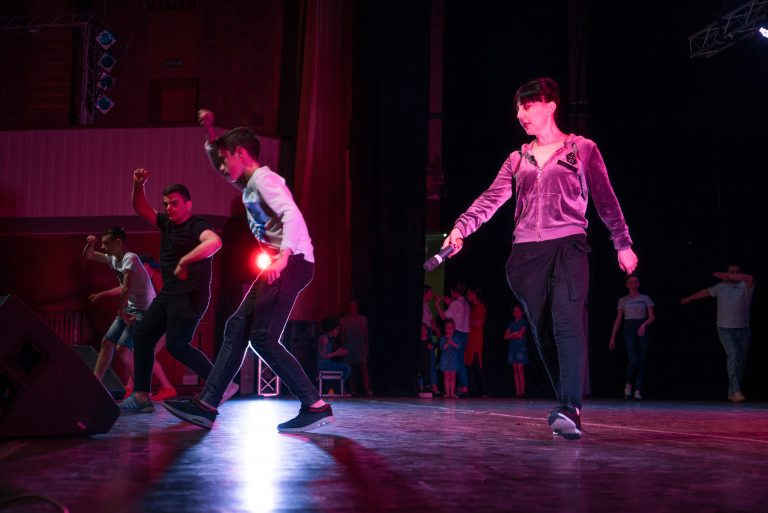
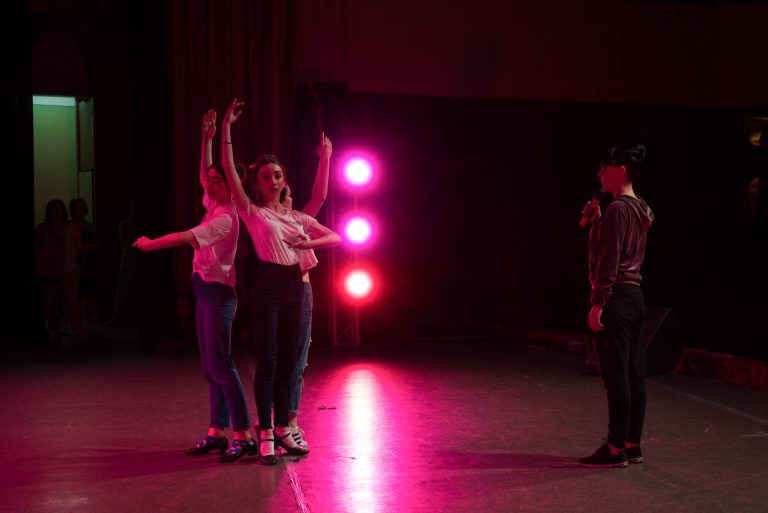
slideshow
Thus, within a year, Manana handled all legal and organisation-related formalities, and opened a Georgian cultural educational centre “Iberia”. The name is not arbitrary, as this is how an ancient Georgian kingdom in the III century BC to VI century AD was called.
In “Iberia”, apart from the dancing classes, there is also a Sunday school where they teach the Georgian language and culture. Their students are children of Georgians or those born in mixed Ukrainian-Georgian families.

— I believe they must know the language and culture of their parents, of their ancestors. This job has become the reason of my life.
This centre has already raised four generations of children. Today, about a hundred kids are studying in “Iberia”.

Manana says that over the years she spent in Ukraine, she found a lot of similarities between Ukrainians and Georgians:
— Ukrainians and Georgians both have a great history, culture, and traditions. They have always fought for freedom and independence. They have had the same problems, and the same goals. It is not today when the fellowship of our peoples was born, its roots run deep in the ancient times.
Still, every summer, Manana’s family goes to Georgia:
— We can’t live without it. Georgia is our motherland, and Ukraine is our second motherland.

Georgians in Ukraine
According to the Encyclopedia of Ukraine’s History, the first Georgian settlements on the territory of Ukraine date back to the 1720s. These were political migrants seeking refuge on the territory of Ukraine in hopes of gaining support of the Russian tsar in war against the Ottoman Empire and Imperial Iran. In 1738, the Russian Empress Anna Ioannovna formed a Georgian hussar regiment based in Poltavshchyna (Poltava region).
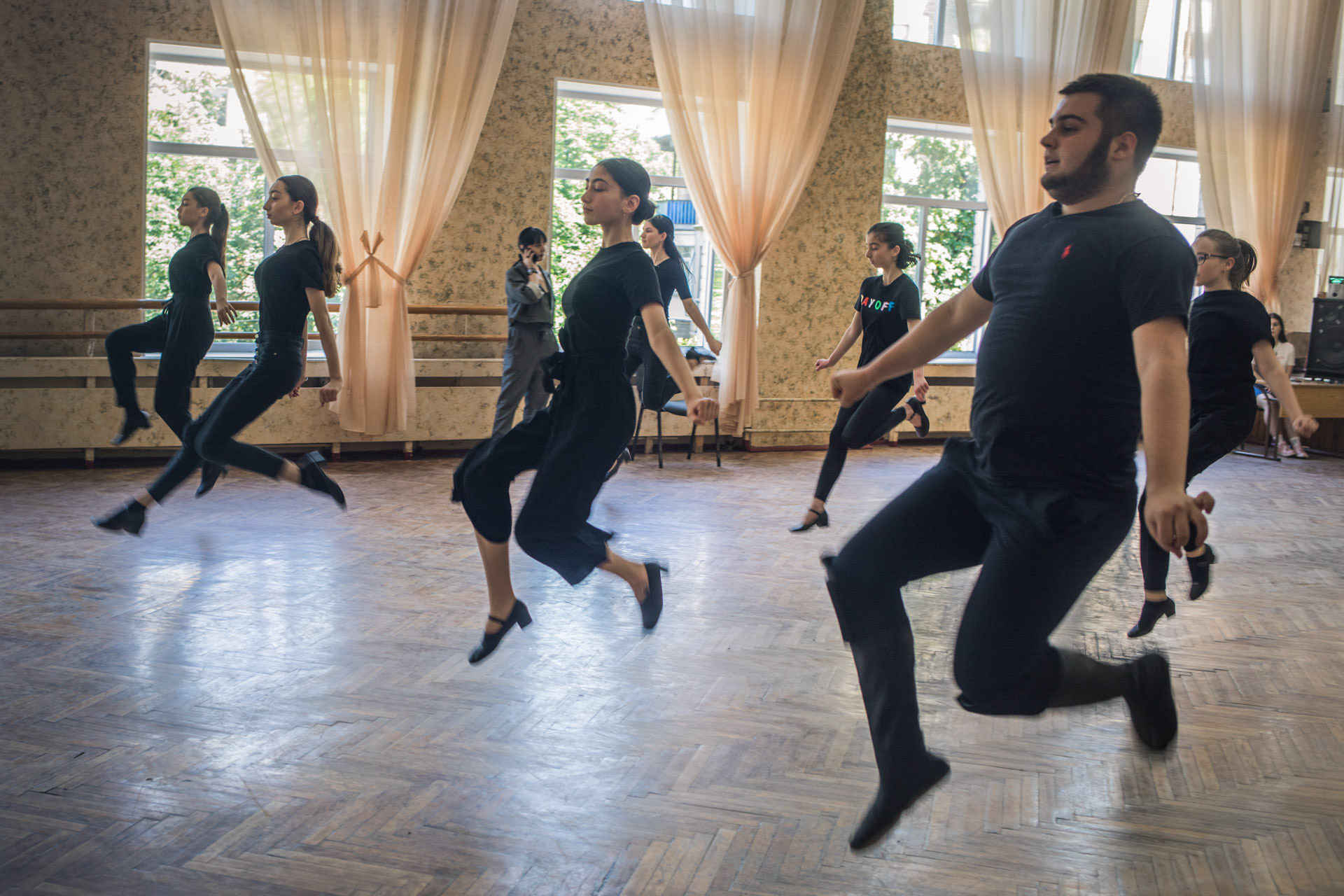
In 1764, Empress Catherine II gave lands to the Georgian nobility on the territory of Novorossiia governorate (central and southern parts of the contemporary Ukraine).
In the 19th-20th centuries, Georgians in Ukraine settled predominantly in cities and were most frequently employed as civil servants, medical professionals, and lawyers. In the Soviet times, the number of Georgians in Ukraine multiplied almost by 18.
According to the census of 2001 in Ukraine, 34 199 Georgians lived primarily in southeastern regions and in Kyiv. Over half of them named Russian as their mother tongue, and a third named Georgian.
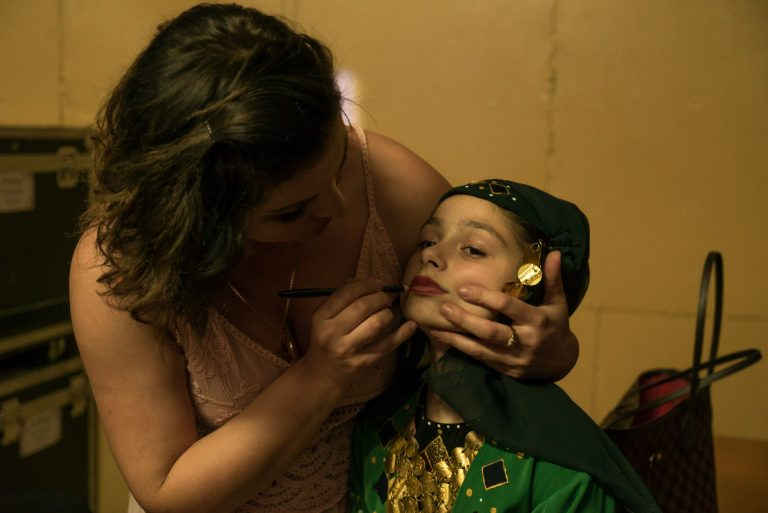
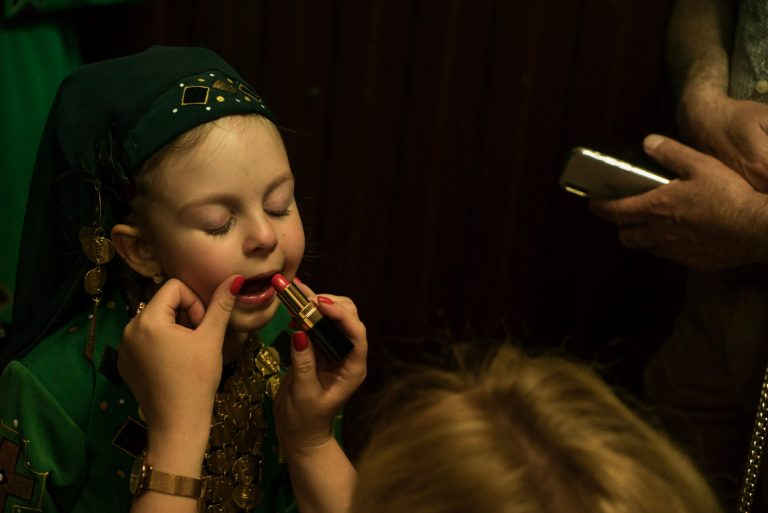
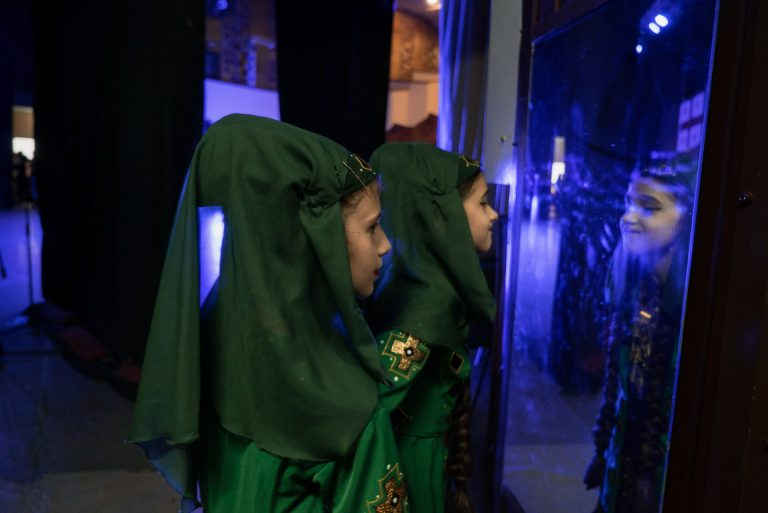
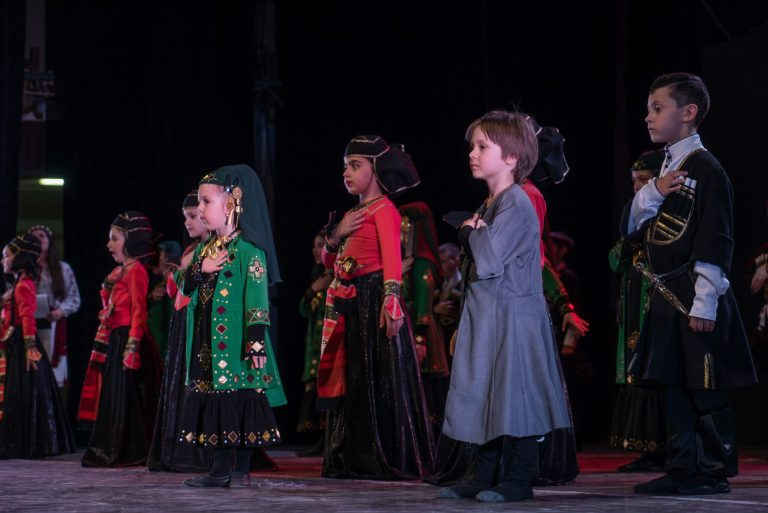
slideshow
Today, numerous Georgian cultural organisations work in cities of Ukraine, namely the All-Ukrainian Public Association “Georgia” and the Association of Georgians of Ukraine “Iberieli” (Kyiv), National-Public Association “Georgia” (Kharkiv), Cultural Centre “Mziuri” (Sumy and Odesa), Cultural and Educational Centre “Iveria” (Odesa), Association “Arahvi” (Lviv), Cultural Centre “Georgian soul” (Dnipro), Ukraine-Georgia Fellowship Centre “Sakartvelo” (Rivne).
Since 2014, Georgians have been taking part in Russian-Ukrainian war. They have founded the Georgian National Legion commanded by Mamuka Mamulashvili. In 2016, the Legion was integrated into the Armed Forces of Ukraine. Georgians became the first foreign citizens officially accepted to the Armed Forces of Ukraine.
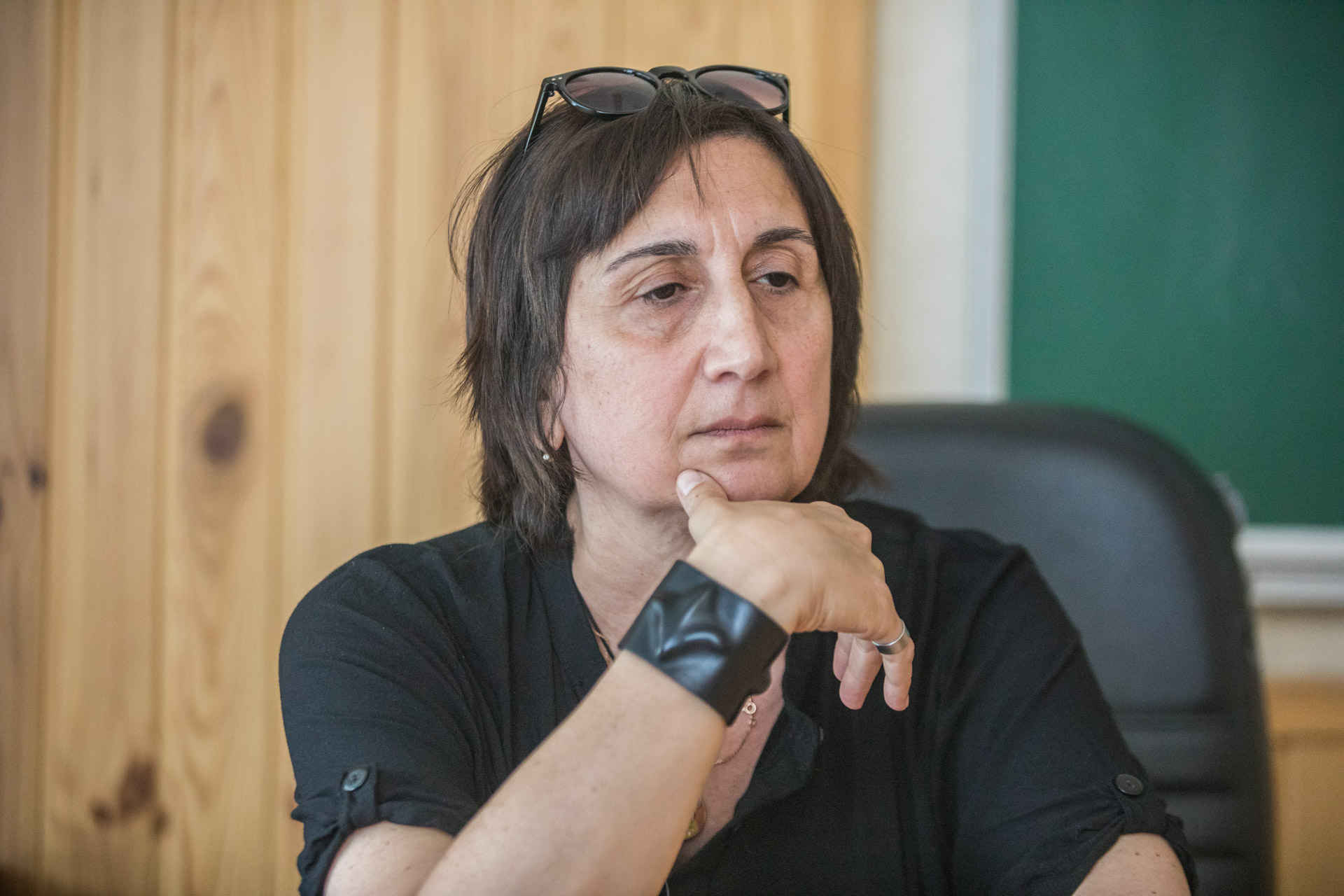
The Language. Maryna Donadze
Maryna Donadze is sitting in the classroom of the Kyiv school #88, where the “Iberia” centre holds classes. A lesson of the Georgian language, which she was teaching, has just finished. Maryna is a journalist, she writes for Georgian media, and she has been teaching the Georgian language and literature in the cultural educational centre for over a year:
— See, what’s written on the board? ‘Language is a gift to a nation’. Indeed, if you lose your language, you get lost yourself. And our language is ancient. Religion and language helped us survive as a nation. It hurts me so much when I see us losing it.
Maryna moved to Kyiv from Tbilisi in 2008 because of her husband’s work. Then their son got used to the local school and convinced them to stay. But Maryna does not give up hope of returning to her motherland:
— Georgians never liked to leave their land and adjust somewhere else. From my childhood, I don’t remember anybody leaving. A week or two would pass, and we were homesick and came back. Could not live without Georgia. The time will come when we all will start returning. By then we must preserve our language, our culture, and thus support our spirit.
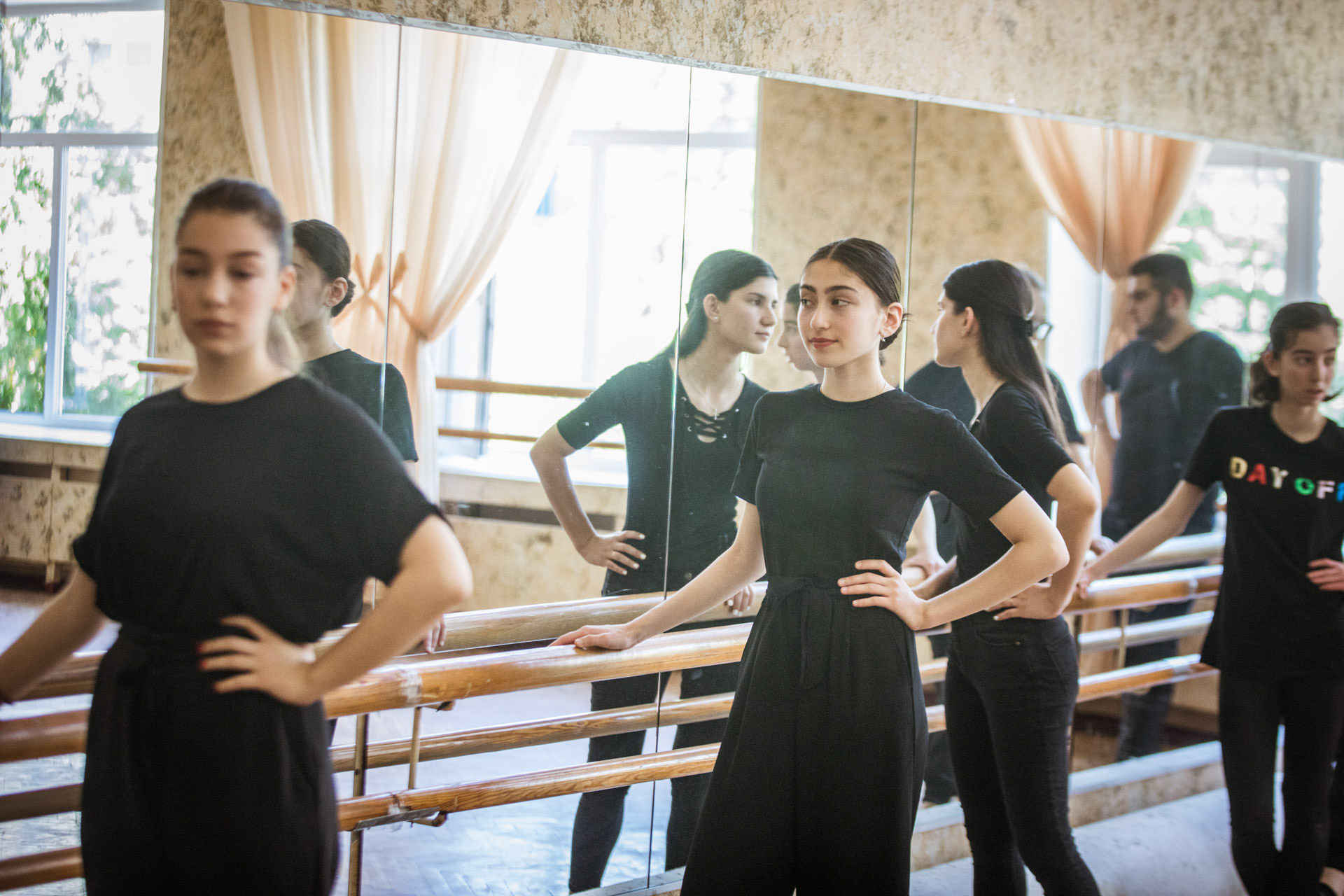
Maryna Donadze preserves the Georgian culture and passes it on to children through teaching. She has a few groups: classes for five-year-olds аnd for adults. She teaches the language, culture and history of Georgia. Each lesson starts with the Georgian anthem.
According to Maryna, there are many children from mixed families in school, in most of them mother is Ukrainian and father is Georgian:
— There are mothers who are more enthusiastic than fathers. They come here all the time, check the notebooks, ask questions. If the mother is enthusiastic, then everything works out well.
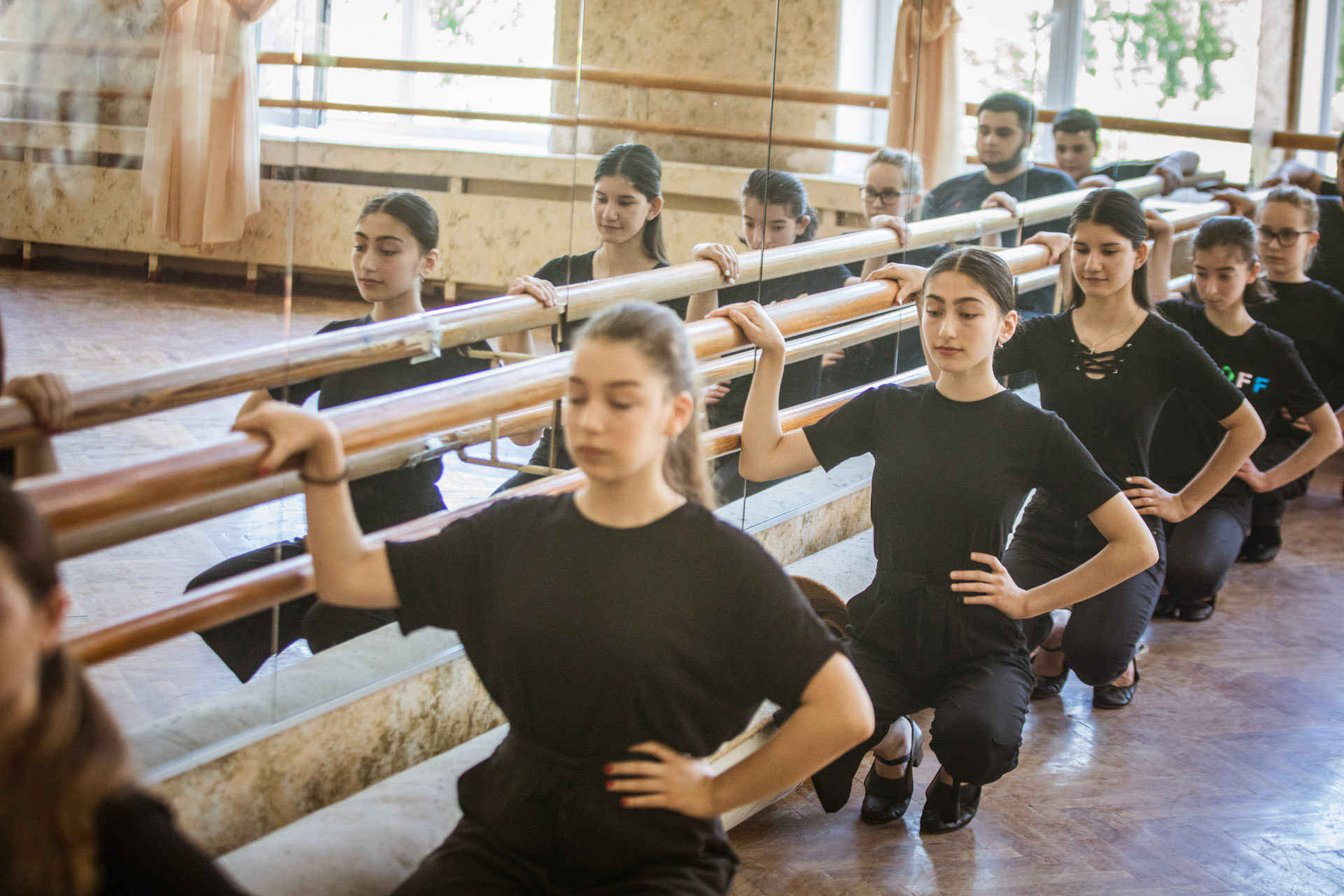
Among her students are also families of Abkhaz refugees where not only the children, but also the parents grew up in Ukraine:
— We, just like you, suffered a lot, and still preserved our language.
Maryna asks her students’ parents to speak to children Georgian at home, and her advice to the students is to learn a few languages, but first and foremost their mother tongue, Georgian:
— When you forget your mother tongue, you will not need any other languages.
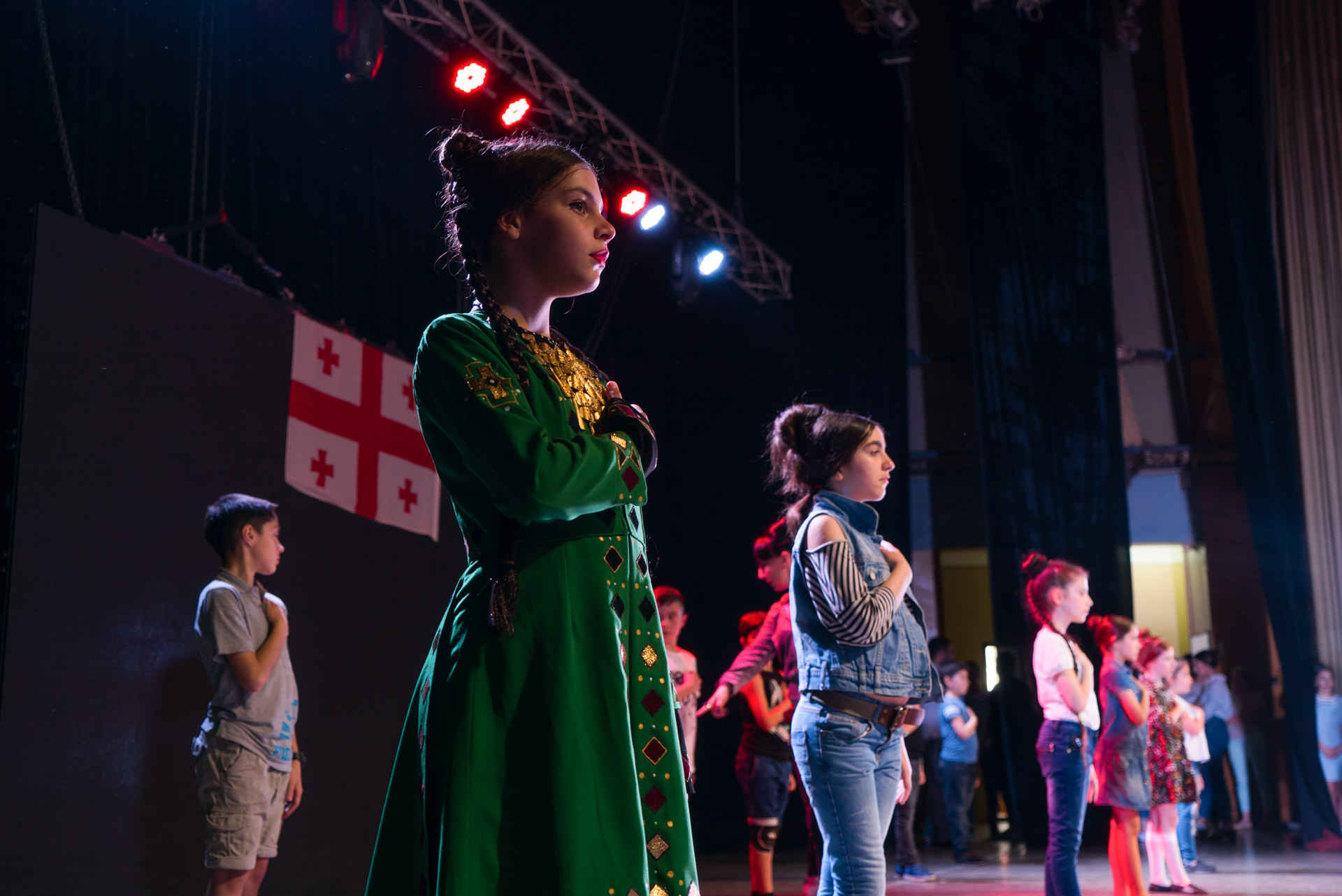
Maryna Donadze believes that for the students and their parents “Iberia” is a place of concentration of the national spirit:
— They leave the school as true Georgians. I feel this is how we preserve our centre. Our people is not numerous. If we get lost, things will get tough.
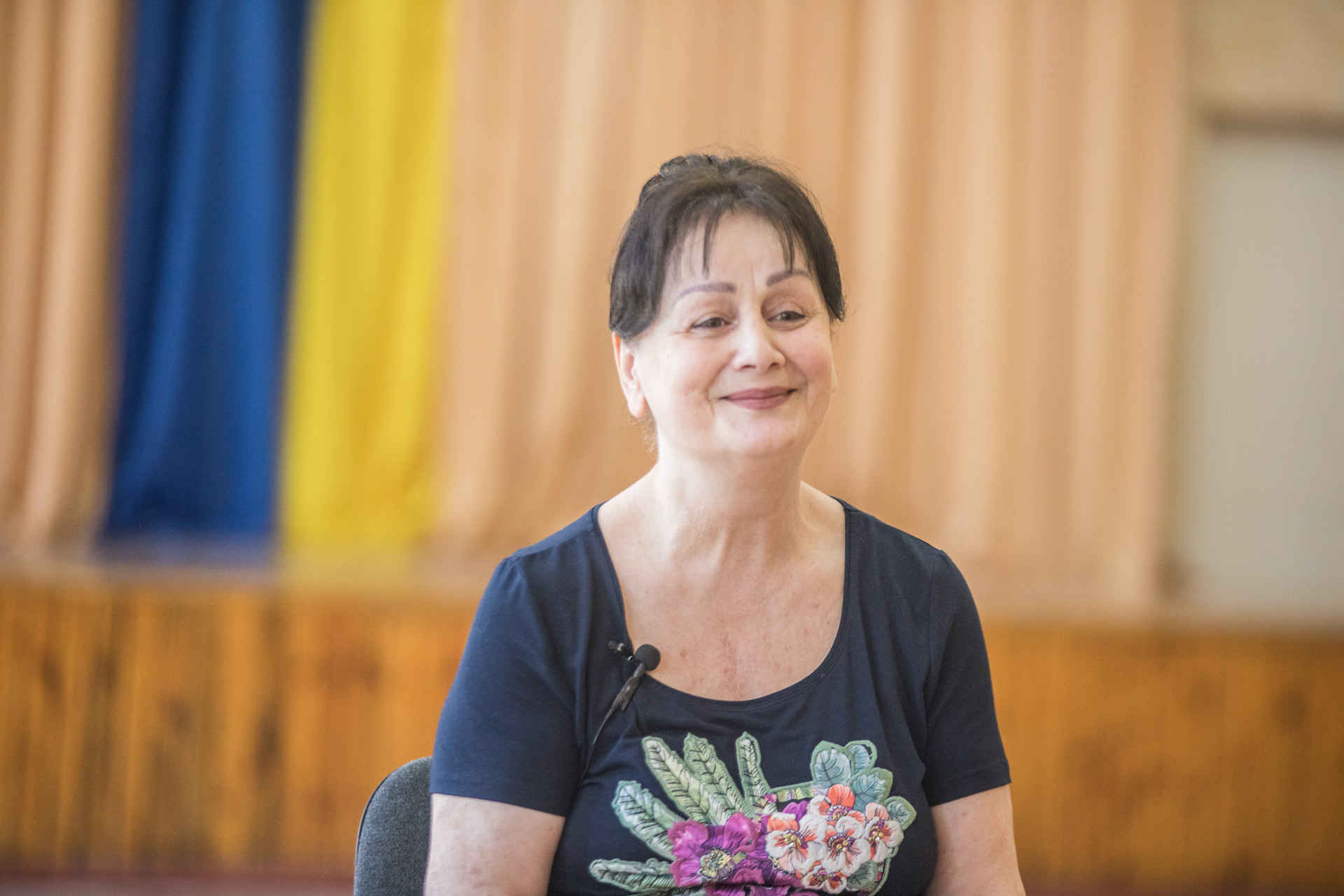
Second Motherland. Nato Kvaratskhelia
“A Georgian gal fell in love with a Ukrainian lad” – this is how Nato Kvaratskhelia explains the reason why she moved to Kyiv from the Abkhaz city of Gagra.
Nato came to Ukraine from then peaceful Abkhazia in the Soviet times. In Kyiv she graduated from the Faculty of Law at Kyiv National Taras Shevchenko University, then got her licence and now works as a private notary. Nato speaks literary Ukrainian language which she mastered during the years in Ukraine:
— When in 1992 they opened the first Georgian embassy in Ukraine, for me it was as if Peter I opened the window to Europe. I started cooperation with the embassy: helped Georgian nationals with translation, employment, and receiving residence permits.
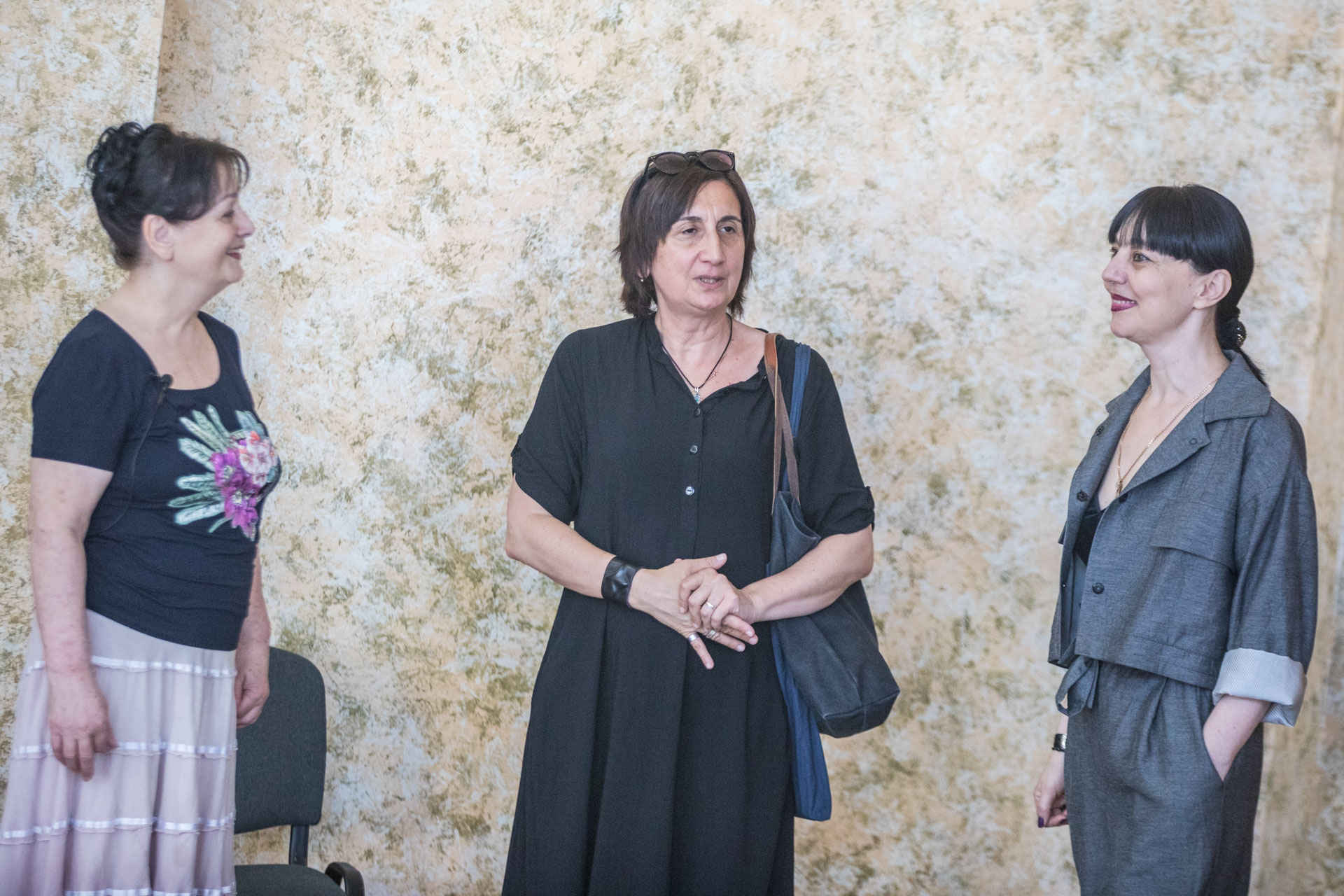
Now, as Nato says, she works not for making money, but for her soul as this is how she can help her compatriots while living in Ukraine.
According to Nato, she managed to adapt in Ukraine quite quickly. The only thing that Ukrainians did not understand in the 1990s was what a contemporary war was like. It was then, in 1992-1993, when an armed conflict unfolded on the territory of Georgian Abkhazia: the separatists supported by Russia announced independence of the region and fought against the Armed Forces of Georgia. As a result, the region was occupied by Russia, Tbilisi still has no control over it. Many Georgians left the country during that period, and also in 2008 when the Russian-Georgian war outbroke and Tskhinvali was occupied. At that time Russia attacked Georgia through Hori and Tskhinvali region. Shida-Kartli region near the border with Russia became the theatre of military action:
— When I spoke about Abkhazia, how we lost everything, they didn’t really understand me in Ukraine. And now, when this happened in the Crimea, they say to me ‘We understand how hard it is.
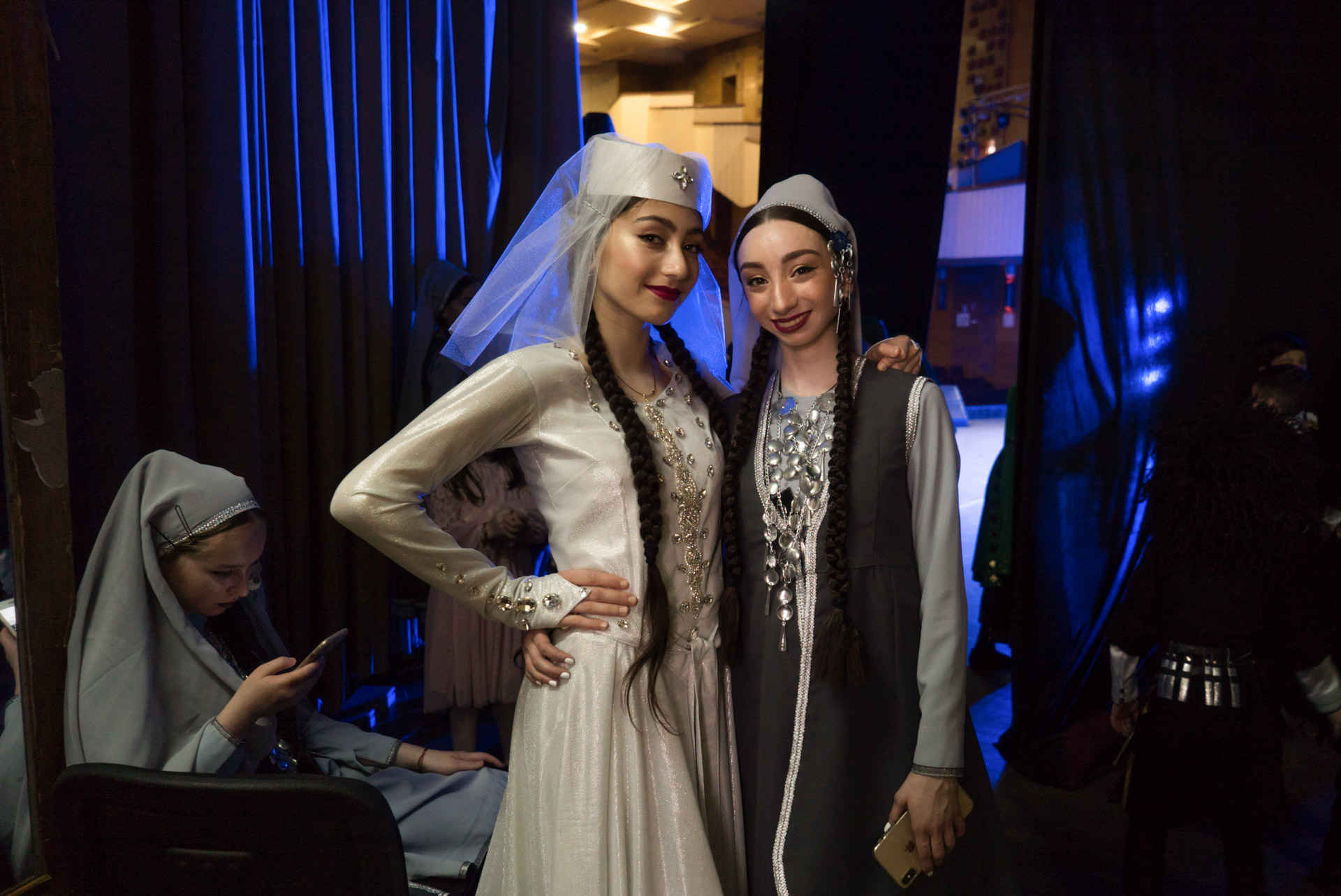
At that time Georgians fled to the neighbouring Russia, some went further to Ukraine. Nato was taking people out of Abkhazia. Many of them found home on Ukrainian land:
— Ukraine gave me love, life, work. I am very satisfied with my life in Ukraine, and very grateful to Ukraine and the Ukrainian people. It is my second motherland.
